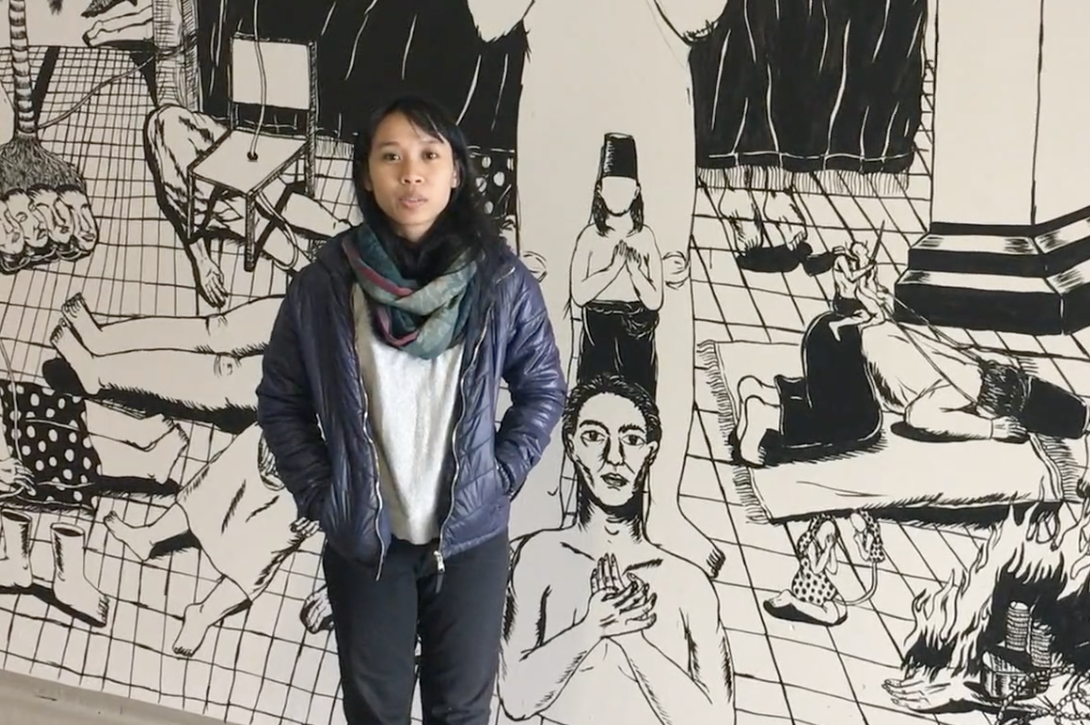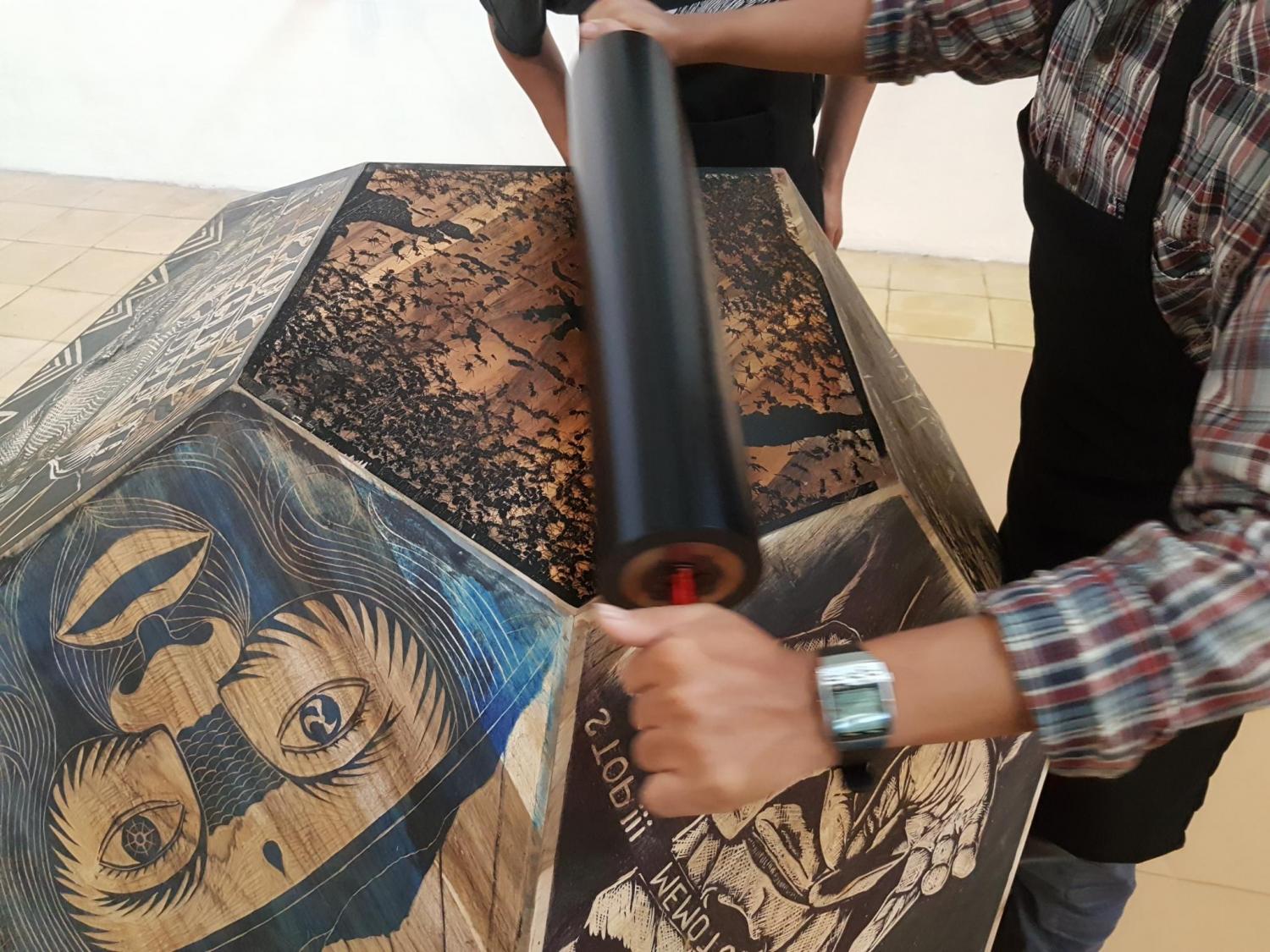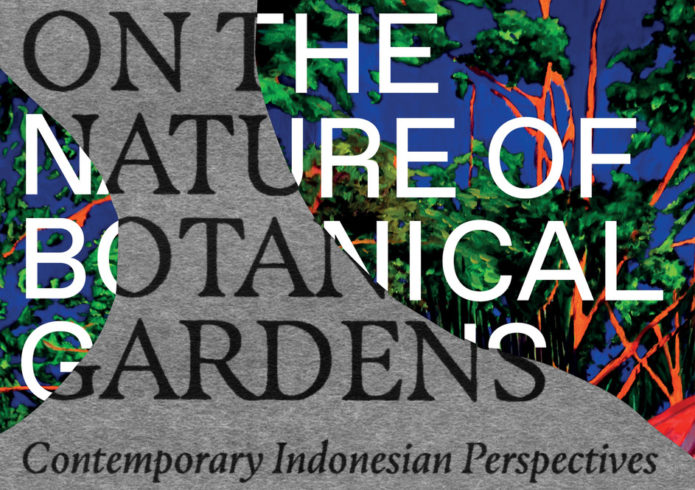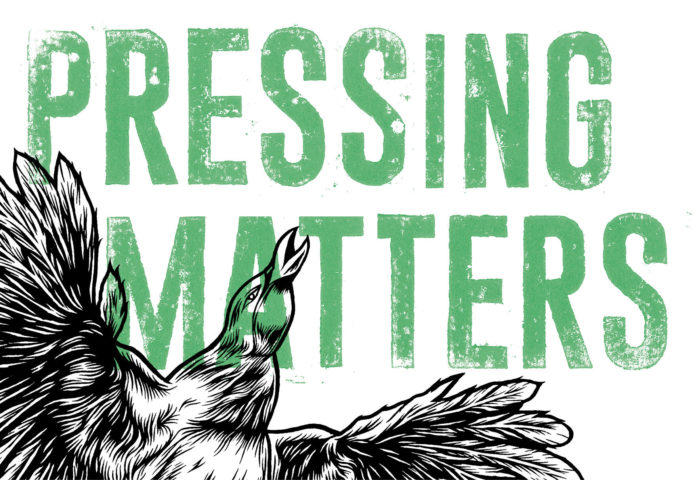 Ipeh Nur poseert voor haar werk Bungah Merah over de volkerenmoord op de Banda eilanden, in de Tolhuistuin in Amsterdam (2018)
Ipeh Nur poseert voor haar werk Bungah Merah over de volkerenmoord op de Banda eilanden, in de Tolhuistuin in Amsterdam (2018) Ipeh Nur
Ipeh Nur was born in 1993 in Yogyakarta. She has graduated in 2016 from Indonesia Institute of Arts (ISI), Yogyakarta, majoring in graphic art. Her works are inspired by daily life issues and her personal experiences.
She has participated in several exhibitions including Women, Art & Politics (2017), FCAC, the WOW Fest Melbourne, Beyond Masculinity (2016), at Ark Galerie, The Beresyit! (2016) at Krack! Studio in Yogyakarta, Pentagonal Icositetrahedron (2017) at Cemeti Institute for Art and Society in Yogyakarta, Pressing Matters (2018) and On the Nature of Botanical Gardens (2020) both at Framer Framed in Amsterdam and Kebun Sejarah (Garden of History) (2021) at Zone2Source in Amsterdam.
For the exhibition Pressing Matters (2018) at Framer Framed, Ipeh Nur traveled to the Netherlands to create a new commissioned, site-specific artwork. To the left she poses in front of this work, Bunga Merah, a wall piece in the public hallways of the Tolhuistuin. Next to this new wall piece, Nur also contributed a design to the Pentagonal Icositetrahedron (2017) by Kevin Van Braak, alongside 23 other artists from Indonesia. This work was also shown in exhibition Pressing Matters.
Her design for this is a continuation of her earlier Salimah Series. Salimah is a ‘dangdut’ (Indonesian musical genre) singer, a widow and mother of one child. Set in the 1990s, she often appears wearing sexy, tight-fitting tops and hot pants, accentuating her curvaceous body. People bully but also adore her. Salimah’s past life is quite in contrast with her current appearance, as she used to spend most of her time studying the Quran in the mosque. Her journey cannot be separated from the other two personas present in the work: Solihin, a village leader and her true admirer, and Ahmad, a religious leader who often confronts her for being vulgar. As religious ideology limits Salimah’s space as a woman to express and practice her profession, this work offers a critical view about issues around sexuality, religion, and politics after the fall of Suharto’s Orde Baru (New Order) regime.

Design by Ipeh Nur for Pentagonal Icosetitrehadon, a work by Kevin van Braak

Pentagonal Icositetrahedron, by artist Kevin van Braak with contributions by 24 artists.
Exhibitions

Exhibition: On the Nature of Botanical Gardens
Contemporary indonesian perspectives by nine Indonesian artists


